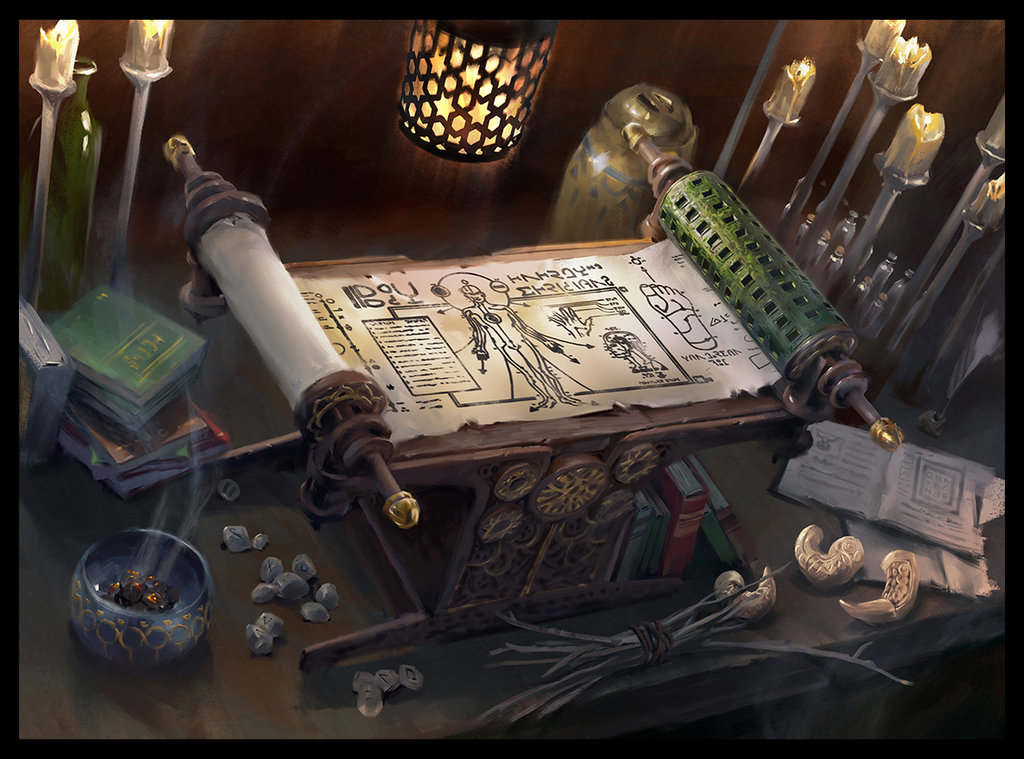On the Origin of the Children
The Children of Egun are said to have come from a distant land - a land whose description is nebulous and mercurial in the myths of the people and the writings of the Primarchs. They were brought by creatures called Shepherds, whom the Primarch Samara said were 'bound by Angels', and guided in the new world by an entity known as Mane, described as 'a titan o'er the earth, of deliberate and unbending will' by the Primarch Balbanes and a 'warmth in presence, brighter than the sun and colder than the night'.
The Sigil of Mane was founded on the Island of Godfall, in the city of Polis, and contained within it a collection Tomes marked each with the Sigil of Mane - tomes that contained a variety of scientific and practical works along with blueprints and descriptions of materials.
Terms
The Children of Egun - all of the humans of the Known World Egun - The word comes from the concession of the Basari, of which little is known The Lycaeum - The collection of works of the Sigil of Mane, the presence of absence of technical details in these books is cause for endless debate amongst the clergymen The Fathers - Our creators, the beings that set us forth Lyssi - From the Childs Tome, a female figure that gave the unnamed author forbidden secrets, it has entered common usage as a pejorative The Primarchs - 7 of the original arrivals who penned treatises describing their arrival and early years on the island, often followed as saintly figures or even, to some, as gods The Garden - a heretical term from the Child's Tale grown into common usage, exact origin unknown The Childs Tome - a heretical text claiming to have been written by a child on the old world and smuggled to the new world, it is often referenced in the Works of Samara. Guardians - a term originating from Samara but adopted for the Exculpate, in the Child's Tome their were said to be implacable guards who spoke in 'an eternal tongue' and kept the children safe Praetors - Praetors serve the Sigil in finding and securing dangerous artifacts and returnin them to the Vocii. They take their name from the Praetorian Edict of Mane to extinguish the Basari people soon after they arrived, an edict eventually rescinded. Shepherds - Those who dedicate themselves to helping others without any concern for recompense Nox - The "devil" of the Child's Tome, used mostly as a curse in Basari songs and sayingsParables
The stories are littered with parables, the majority of them dealing with the teachings of Mane - most of these lack corroboration with the other works. It appears each of the Primarchs adapted these "lessons" as necessary to defend their ideals, or to use them to contrast with their own desires. What they do hold in common: - An emphasis on rigidity of thought and discipline in action - The value of labor and artifice over culture and creation - A respect for family, society, and order - To be content with what is Mane was said to have told the children that their world was gone, and that the seas would consume them if they tried to return - they were not to seek, or to wait, but to flourish in this land and be content. Mane was said to have left the Children after 50 years, with differing accounts of his departure - some term him ascended, others that he became one with the earth, and others that he departed back across the ocean.Remove these ads. Join the Worldbuilders Guild









Comments